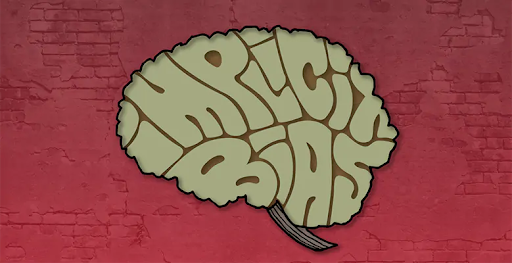
Implicit Bias
Implicit Bias: attitudes or stereotypes that unconsciously affect our actions, decisions, and understanding that are formed over a lifetime as a result of exposure to direct and indirect messages.
Interprofessional Collaboration: collaboration between members of two or more health and/or social care professions to improve the delivery of care.

**This topic is a serious and complex issue. This blog only covers part of this conversation as it relates to interprofessional collaboration.**
Background
Implicit bias is a discussion that has been frequently discussed in conversations regarding equity and diversity. CEO of Goalkeeper, Valerie Alexander, describes implicit bias as an innate response to an unexpected situation (fight or flight). When a situation arises that is unfamiliar it triggers a stress reaction. This is an uncomfortable feeling, so people tend to surround themselves with others that fit their “norm”.
What contributes to “our norm”? Experiences and messages received from others our brain categorizes as safe or unsafe. Back when humans were more divided, the human body would trigger a flight response when seeing someone that didn’t look the same. Today, our bodies trigger this response in a situation that is deemed unexpected.
To discover your implicit biases, try out these two activities:
Implications for IPC
Implicit bias can impact the quality of care patients receive from certain health care providers. However, how does implicit bias affect health providers and their interprofessional collaboration? Specifically, how does an implicit bias based on a healthcare profession, impact teams?
Research is limited on the specifics related to implicit bias on interprofessional teams, but studies have found that team members internalize biases about their professions which change their collaboration to reflect larger power structures and organizational hierarchy (Sukhera, 2021). When there is a power struggle, the resulting consequences are team conflict, poor performance, low morale, and inferior decision-making (Nimmon 2019). Additionally, patient care is impacted because of the ineffectiveness of the team.
The most important aspect of interprofessional collaboration, as stated in the defintion, is to improve the delivery of care. Having an unconscious bias towards team members is problematic to collaboration. It also requires time, intention, and training to change.
To invoke change, Valerie Alexander recommends using three strategies in your everyday interactions:
- Visualize situations before they happen and then change them
Ex: meeting a new physician, an interaction with a patient/family
Use the activity above to practice changing your visualizations - When you encounter an unexpected situation examine your behavior
Is this how I would react if they looked like me?
Is this how I would react if they didn’t look like me? - Have the courage to experience the unexpected
Engage in social interactions with different people (culture, profession, interests, etc.)
December 17, 2021